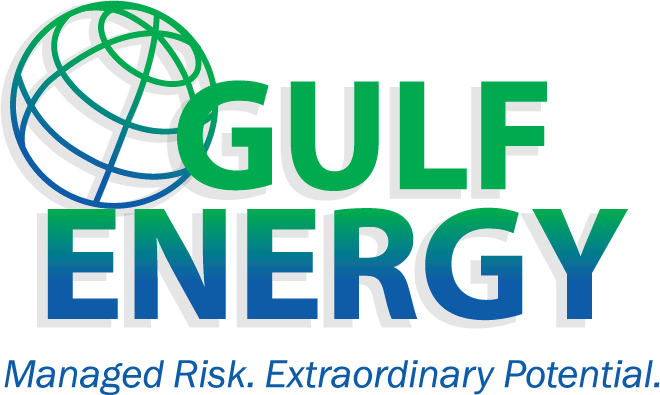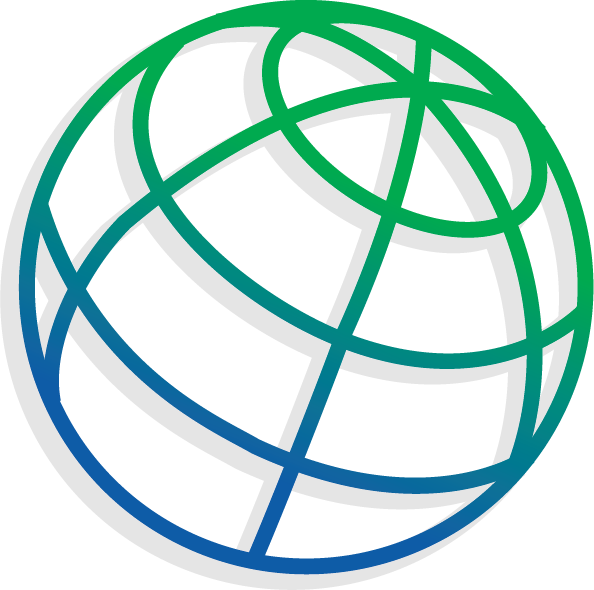Social
Importance and Mission
Gulf values social development as well as the conservation of natural resources and the environment. All stakeholders will be regularly engaged and informed through meetings, activities and social development projects conducted across its operating areas.
A long-term social development strategy will be implemented to build trust and gain acceptance from community and other stakeholders covered by the community relations management and corporate social responsibility policies. Gulf will strive to achieve trust and acceptance and supports undertakings that will bring benefits to the Company and society.
Goals
Gulf will actively contribute to social, community and local business partnerships, implementing activities and initiatives that fulfill this mission under Social Investment (SI) Programmes and Community Outreach Programmes (COP).
The Programmes will be aligned with the United Nations Sustainable Development Goals (UNSDGs), and the guiding principles of human rights and First Nations organisations.
Ensure healthy lives and promote well-being for all at all ages.
Gulf’s goals are to:
provide all required industry training, both on-site and off-site for all employee roles throughout the organisation;
support its workforce and local communities through providing access to safe and healthy food and water; and
provide its workforce and local communities with sporting, exercise, playground and health facilities.
Ensure inclusive and equitable quality education and promote lifelong learning opportunities for all.
Gulf’s goals are to:
support quality education and lifelong learning opportunities; and
support employees with access to childcare, early learning, and school facilities.
on the job skills training in trades, professions, higher education.
Achieve gender equality and empower all women and girls.
Gulf’s goals are to:
empower all genders and provide employment to them based on skill and experience; and
engage with suppliers and all supply chain participants of each gender based on an abilities and best needs basis.
Ensure access to affordable, reliable, sustainable and modern energy.
Gulf’s goals are to:
provide natural gas as a cleaner source of fuel for local and global markets and to supplement lower carbon energy sources, such as ammonia and blue hydrogen; and
develop new markets for natural gas as a lower emissions fuel in trucking and shipping.
Promote sustained, inclusive and sustainable economic growth, full and productive employment and decent work for all.
Gulf’s goals are to:
support economic growth as a caring, encouraging and responsible employer;
provide and support apprenticeships, traineeships and First Nations participation in education and pathway programs;
develop local capabilities and support training initiatives; and
ensure controls and monitoring are in place to achieve equitable pay for all employees.
Build resilient infrastructure, promote inclusive and sustainable industrialization and foster innovation.
Gulf’s goals are to:
embrace technology and innovation to improve productivity and energy efficiency;
engage with leading universities, researchers, entrepreneurs, subject matter experts and parallel industries to solve industry challenges and create shared opportunities; and
partner with individuals and organisations to support productive climate-related dialogue and initiatives.
Reduce inequality within and among countries.
Gulf’s goals are to :
ensure its workforce and its local communities are not disadvantaged because of geography, gender, race, or religion;
ensure that human rights and income equality is maintained regardless of geography, gender, race, or religion.
Ensure sustainable consumption and production patterns.
Gulf’s goals are to :
use sustainable and recyclable materials, products and equipment when possible;
measure its Scope One and Scope Two emissions with high accuracy and implement mitigation plans in addition to offsets.
Take urgent action to combat climate change and its impacts.
Gulf’s goals are to :
set short-term and medium-term climate change targets, underpinned by action to minimize adverse climate change and its impacts;
be Net Zero Scope 1, and 2 greenhouse gas emissions from inception of operations; and
support international efforts including the World Bank’s Zero Routine Flaring Initiative, the Methane Guiding Principles and the International Energy Trading Association’s Markets for Natural Climate Solutions initiative.
Conserve and Sustainably Use the Oceans and Marine Resources for Sustainable Development
Gulf’s goals are to :
set robust environmental management and process safety practises to minimise the impact on marine environments and partner with research institutions to contribute to knowledge of these areas; and
collect and share scientific information on coastal and offshore biodiversity with key research organisations to support effective marine planning, management and monitoring.
Protect, restore and promote sustainable use of terrestrial ecosystems, sustainably manage forests, combat desertification, and halt and reverse land degradation and halt biodiversity loss.
Gulf’s goals are to :
improve air quality and degraded habitats through restoration and sustainable use of land;
participate in quality carbon offset projects that deliver co-benefits, including land restoration and biodiversity outcomes.
Strengthen the means of implementation and revitalize the Global Partnership for Sustainable Development.
Gulf’s goals are to :
register with The Partnership Platform, which is a global registry of voluntary commitments and multi-stakeholder partnerships made by stakeholders in support of the implementation of the Sustainable Development Goals (SDGs);
collaborate with all stakeholders within the value chain to implement and promote the UNSDGs.
SDG Roadmap for the oil and gas sector
Gulf will embrace the IPIECA and World Business Council for Sustainable Development (WBCSD) roadmap for the Oil & Gas industry.
The Roadmap identifies how gas companies working within the sector can work towards a low-emissions future while contributing to a healthier and more prosperous world aligned with the IPIECA and WBCSD 2030 Agenda for Sustainable Development.
The Roadmap presents a series of impact opportunities which focus on where the sector can maximise its contributions to the Sustainable Development Goals (UNSDGs). These impact opportunities involve scaling up good practices in environmental and social performance and building on innovative partnerships, while recognising the importance of the energy transition in realising the world’s ambition to achieve net-zero emissions under the Paris Agreement
Gulf’s engagement with Gulf of Carpentaria communities
Gulf understands that its future operations will have far-reaching impacts on society. Gulf wants to contribute to a shared future and positive legacy by developing lasting relationships with people, learning about and supporting their goals and aspirations, avoiding or mitigating adverse impacts, and respecting different cultures and connections to lands and waters.
Gulf will find leading and mutual beneficial ways to work with communities and First Nations Peoples, particularly in how heritage is protected. Gulf will implement a model of co-management of land and waters to deliver more enduring socioeconomic, heritage and environmental outcomes.
Gulf will work with all relevant stakeholders to deliver positive outcomes that are increasingly important as society comes together to address global challenges like climate change. Gulf’s Team Members will work with First Nations communities to explore opportunities for them to participate in climate initiatives.
Gulf understands that its future operations may disturb the environment, impacting surrounding communities. Gulf’s future operations will deliver significant economic and social benefits, such as the production of essential products, employment, small business development, tax and royalty streams, training and skills development, and socioeconomic programmes.
In all locations and through all stages of the life of our operations, Gulf will respect and support all internationally recognised human rights, in line with the United Nations’ Universal Declaration of Human Rights (UDHR), the United Nations Declaration on the Rights of Indigenous Peoples (UNDRIP), the Queensland Human Rights Commission (QHRC) and the United Nations Guiding Principles for Business and Human Rights (UNGPBHR). Please refer to Gulf Energy’s Anti-Slavery, Child Labour & Human Traffic Policy.
Gulf will engage everyone from archaeologists and economic development experts to human rights specialists to work in partnership with communities to understand how Gulf’s work affects their lives, their culture and their heritage. By doing so, Gulf will respond to community concerns and work to optimise benefits and reduce negative impacts, both for the local community and for the company. Gulf will consult and engage with communities regularly, in good faith, and in ways that are transparent, inclusive, and culturally appropriate.
Gulf will seek to ensure that its engagement practices respect human rights, that diverse voices are heard and that vulnerable and “at risk” groups can participate in engagement processes. As part of this engagement, Gulf will address community concerns, needs and priorities.
Talent, Diversity & Inclusion
Gulf is committed to an inclusive environment where people feel comfortable to be themselves. Gulf wants Team Members to feel that all voices are heard, all cultures respected and that a variety of perspectives are not only welcome – they are essential to success. Gulf’s Team Members will treat each other fairly and with dignity regardless of race, gender, nationality, ethnic origin, religion, age, sexual orientation or anything else that makes us different.
First Nations people
Gulf’s commitment to reconciliation
Gulf recognises the cultural, spiritual and physical connections that First Nations peoples have with land, water, plants and animals.
Gulf’s vision for reconciliation is to partner with Indigenous communities to create positive economic, social and cultural outcomes.
Gulf will report every year on progress towards committed outcomes to support four pillars:
Respect for Culture and Heritage;
Capability and Capacity;
Economic Participation;
Stronger Communities.
Upholding rights
Indigenous peoples are entitled to all human rights enshrined in the Universal Declaration of Human Rights.
Gulf will operate in a manner consistent with the UN Declaration on the Rights of Indigenous Peoples, which recognises the right of Indigenous peoples to “maintain and strengthen their distinctive spiritual relationship with their traditionally owned or otherwise occupied and used lands, territories, waters and coastal seas and other resources” (Article 25). Gulf will use The Community Guide to the UN Declaration on the Rights of Indigenous Peoples as its base to form and implement on the ground actions.
Standards and Practices
Gulf will adopt best practices for the derivation of heritage preservation, agreements, economic development, social impact analysis, and social risk impacting First Nations peoples.
Cultural awareness
Gulf knows it must build a culture of active inclusion and cultural safety, where people live their values and speak up freely if something does not feel right.
Gulf will implement cultural awareness training, with all frontline staff, including the Board, undertaking both e-learning and face-to-face training with Indigenous Australians. Traditional Owners will be engaged to develop the training content and where possible also attend training sessions to share further information.
Australian heritage legislation reform
Gulf supports strengthening safeguards for cultural heritage at both state and Commonwealth legislative levels. Reforms must ensure that Aboriginal and Torres Strait Islander peoples are placed at the centre of decision-making on matters relating to protection of their cultural heritage.
















